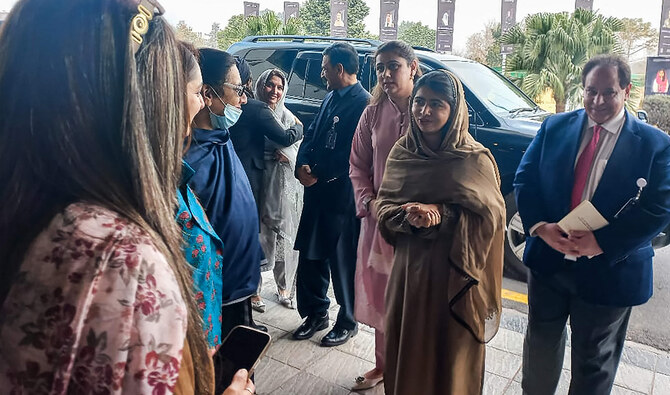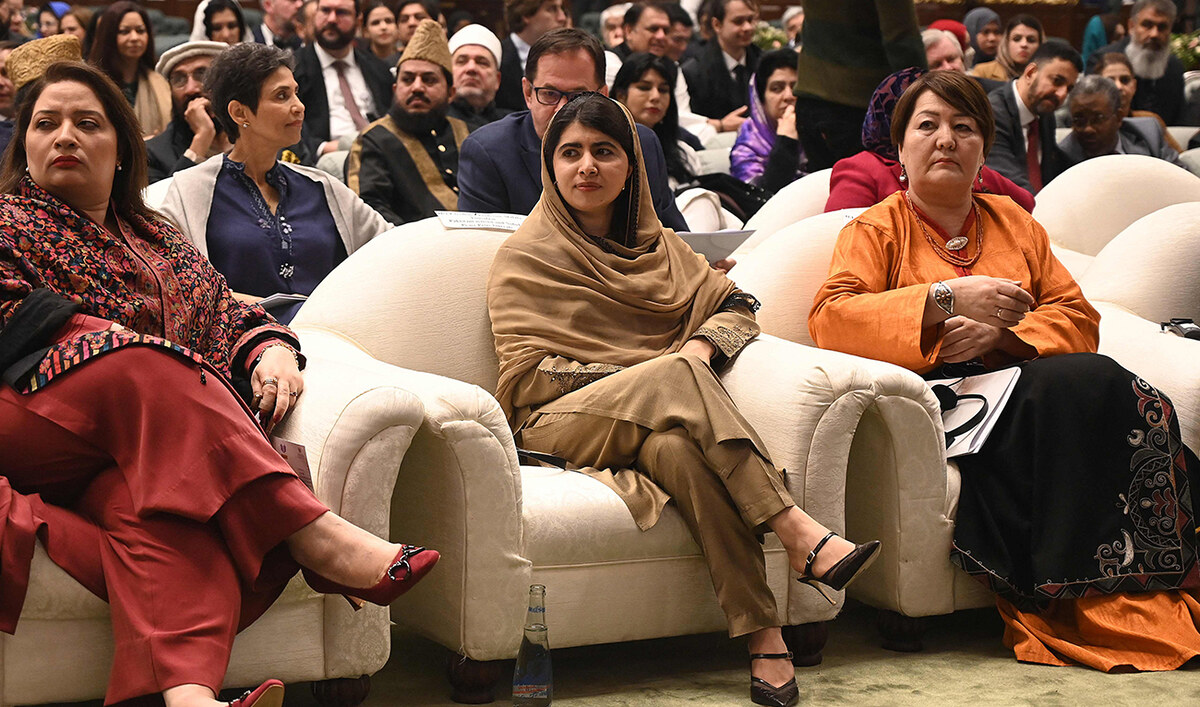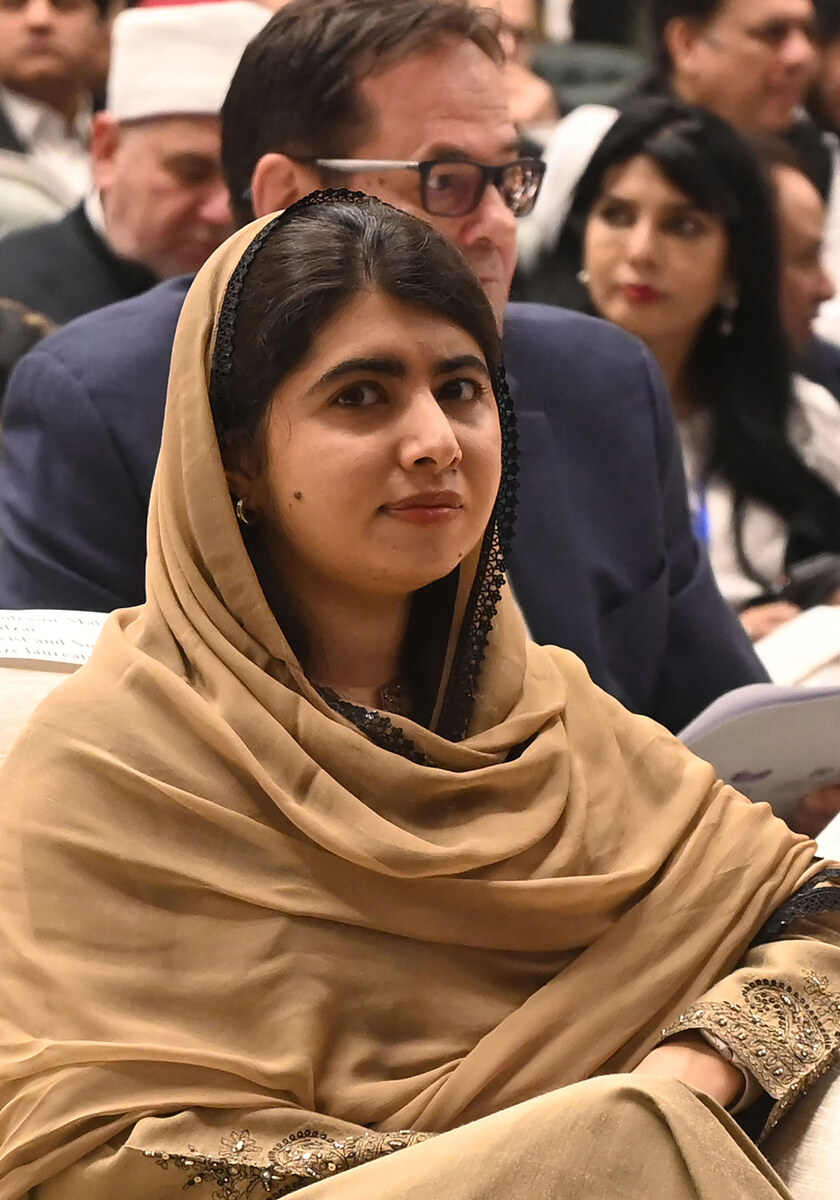ISLAMABAD: The Afghan Taliban on Tuesday dismissed reports that Mullah Muhammad Yaqoob, a senior Taliban leader and the son of the insurgency’s late founder, Mullah Omar, had been killed in Pakistan’s northwestern city of Peshawar.
Yaqoob, 31, is Omar’s eldest son and in charge of the Taliban’s military commission in 15 of Afghanistan’s 34 provinces.
Reports of Yaqoob’s death could undermine unity within the insurgency and threaten a fledgling peace process to bring a negotiated end to an 18-year-long war in Afghanistan.
“This is an utter lie, which Kabul is spreading to hide its shame and defeat,” Taliban spokesperson Zabihullah Mujahid told Arab News, referring to reports that Yaqoob had been killed.
A statement released by the Taliban on Tuesday also dismissed reports of Yaqoob’s death.
Afghanistan’s first deputy speaker of the national assembly Zahir Qadir had last claimed in 2015 that Omar’s son had been killed in Quetta, followed by quick denials from the Taliban.
The same year, the Taliban finally conceded that Omar, the one-eyed Afghan cleric who transformed a small group of seminary students into a national guerrilla insurgency, was dead. The Afghan government believes he died in a hospital in Pakistan’s port city of Karachi in April 2013.
The Taliban are currently engaged in a flurry of talks with representatives of the US government to find a negotiated settlement to the conflict in Afghanistan. They have so far refused direct talks with the Kabul government whom they view as an illegitimate, foreign-appointed regime.
Taliban dismiss reports Mullah Omar’s son murdered in Pakistan
Taliban dismiss reports Mullah Omar’s son murdered in Pakistan

- Spokesman calls reports of Yaqoob’s murder an “utter lie“
- Rumours could threaten fledgling peace process in Afghanistan
Pakistan, China reaffirm commitment to ‘CPEC 2.0’ focusing on industrialization

- Since 2013, CPEC has seen tens of billions of dollars funneled into massive transport, energy and infrastructure projects in Pakistan
- CPEC 2.0 will focus on industrialization and special economic zones as well as on clean energy, agriculture and livelihood projects
ISLAMABAD: Pakistan and China have resolved to undertake high-quality of development of a second phase of the China-Pakistan Economic Corridor, or CPEC 2.0, that would focus on industrialization, Pakistan’s foreign ministry said on Thursday.
The statement came after a 5th meeting of the CPEC Joint Working Group on International Cooperation and Coordination (JWG-ICC) was held in Beijing. It was co-chaired by Pakistan’s Foreign Secretary Amna Baloch and Chinese Vice Foreign Minister Sun Weidong.
China and Pakistan enjoy a close strategic partnership, with the latter’s location on the Arabian Sea providing Beijing an overland route toward the Gulf of Aden and onto the Suez Canal, and enabling Chinese ships to avoid the potential chokepoint of the Malacca Strait.
During the delegation level talks, the two sides reviewed with satisfaction the progress made since the 4th meeting of the JWG-ICC held in Islamabad in January 2024, according to the Pakistani foreign ministry.
“Both sides reaffirmed their commitment to the high quality development of CPEC 2.0, with its emphasis on industrialization and Special Economic Zones (SEZs) as well as on clean energy, agriculture and livelihood projects,” it said in a statement.
“The meeting also acknowledged the pivotal role of CPEC in promoting regional connectivity, win-win cooperation and common prosperity, including through partnerships with other countries.”
Since its initiation in 2013, CPEC has seen tens of billions of dollars funneled into massive transport, energy and infrastructure projects in Pakistan. But the undertaking has been hit by Islamabad struggling to keep up its financial obligations as well as attacks on Chinese targets by militants.
During a visit to China in June last year, Pakistan Prime Minister Shehbaz Sharif had announced both countries had mutually decided to enhance economic cooperation that would enter its next phase with five new corridors.
The Chinese vice foreign minister said 2.0 would focus on growth, livelihood and innovation, and reinforce Pakistan’s national development framework centered on ‘5 Es,’ representing exports, e-Pakistan, energy, environment and equity.
Foreign Secretary Baloch described CPEC as the cornerstone of China-Pakistan economic cooperation as well as a “shining symbol” of the enduring friendship between the two countries.
Both sides expressed resolve to deepen cooperation in the fields of media, cultural exchanges and people-to-people linkages to accelerate the building of a “China-Pakistan Community of Shared Future in the New Era.”
Separately, both countries also held a 4th round of Pakistan-China Bilateral Political Consultations (BPC), at which they reaffirmed commitment to further deepening their partnership.
The two sides also exchanged views on a range of regional and international issues and agreed to further enhance their mutual coordination and consultations, according to the Pakistani foreign ministry.
“Both sides agreed to further deepen their mutual partnerships in sectors such as information technology, agriculture and clean energy, driven by the concept of win-win cooperation and pursuit of people centric, inclusive development,” it said.
“The two sides underscored the need to strengthen their mutual coordination at the multilateral forums, including at the United Nations Security Council.”
Later, the foreign secretary also held a meeting with Executive Vice Foreign Minister Ma Zhaoxu and exchanged views on Pakistan-China relations as well as regional and international issues of common interest.
Northwestern Pakistani province says 10 workers killed in coal mine collapse in country’s southwest

- The mine in Sanjdi coal field in Pakistan’s southwestern Balochistan province collapsed after a methane gas explosion on Thursday
- Mines in Balochistan are known for hazardous working conditions and poor safety standards, where deadly incidents are not uncommon
ISLAMABAD: Ali Amin Gandapur, chief minister of Pakistan’s Khyber Pakhtunkhwa province, said on Saturday that 10 residents of his province were among 12 workers killed in a coal mine collapse in the country’s southwest.
The mine in the Sanjdi coal field in Pakistan’s southwestern Balochistan province collapsed after a methane gas explosion on Thursday and a dozen miners were trapped inside it, according to the Balochistan mining department.
Rescue teams from the Balochistan mining department and the Provincial Disaster Management Authority (PDMA) recovered bodies of four miners on Friday, following an hours-long effort.
In a statement issued from his office, CM Gandapur said ten of the deceased miners hailed from the Shangla district of the Khyber Pakhtunkhwa province.
“We share the grief of the bereaved families,” the chief minister was quoted as saying by his office.
On Friday, Balochistan Chief Mines Inspector Abdul Ghani said the workers had been digging coal at 4,000 feet inside the mine, adding that the entire mine had caved in due to the intensity of the gas explosion.
“The mining department will conduct a thorough investigation to assess what kind of safety measures were put in place by the private mine owners,” he told Arab News.
Mines in Balochistan, which are operated by private companies under lease agreements with the government, are known for hazardous working conditions and poor safety standards, where deadly incidents are not uncommon.
At least 82 coal miners working on different projects were killed in Balochistan in 46 accidents last year, according to the Balochistan mining department.
Pakistan calls on world bodies to join hands for sustainable solutions for girls’ education

- The call came from PM Shehbaz Sharif at the opening session of a summit on girls’ education in Muslim countries
- The two-day conference aims to stress Islam’s message that both men and women have the right to education
ISLAMABAD: Prime Minister Shehbaz Sharif on Saturday urged international organizations and philanthropists to join hands to find sustainable solutions for the education of girls as Pakistan opened a two-day summit to discuss girls’ education in Muslim communities.
The global summit, which aims to find ways to advance girls’ education across the Muslim world, is being attended by over 150 dignitaries from 44 Muslim and other friendly states, according to Pakistan’s foreign office.
The primary aim of the conference is to stress the implementation of the Islamic message that both men and women have the right to education, according to Pakistan Education Minister Khalid Maqbool Siddiqui, whose ministry is hosting the event.
In his keynote address at the opening session, PM Sharif said ensuring equitable access to education for girls is one of the most “pressing challenges” facing the world.
“I call upon both global and Pakistani organizations, philanthropists and entrepreneurs to join us in creating scalable and sustainable solutions for girls’ education,” the prime minister said.
“Over the next decade, millions of young girls will enter the job markets [so] as they do so, they have the potential not just to lift themselves, their families and their nations out of poverty, but also to enrich the global economy, create new markets and find innovative solutions to our shared challenges.”
The Pakistan premier thanked Saudi Arabia’s King Salman and Crown Prince Crown Prince Mohammed bin Salman for their support and patronage of the conference.
“The pursuit of knowledge is a sacred duty for every Muslim, regardless of gender, as emphasized by Prophet Muhammad (Peace Be Upon Him),” he said.
“His (PBUH) awe-inspiring message was preached in a society which was still in darkness and even in denial of the basic rights of women to exist in the world. In response to these great injustices, Islam introduced a transformative social paradigm.”
Sharif said the Muslim world, including Pakistan, faces significant challenges in ensuring equitable access to education for girls.
In Pakistan, he said, women make up more than half of the total population, yet the female literacy rate stands at only 49 percent and alarmingly, around 22.8 million children in the age bracket of five to 16 years are out of school, with a disproportionate number being girls.
“Denying education to girls is tantamount to denying them their voice and their choice, while depriving them of their right to a bright future,” he said, highlighting various initiatives undertaken by his government for the education of girls.
The Pakistan premier gave the examples of Fatimah Jinnah, sister of Pakistan’s founder Muhammad Ali Jinnah, Benazir Bhutto, first woman PM in the Muslim world, and Maryam Nawaz Sharif, first woman chief minister of a Pakistani province, saying they all inspired women participation in politics and socio-economic future of the country.
“History is witness to the determination and resilience of women who have thrived even within the limited spaces afforded to them, breaking the shackles of societal servitude and leaving and indelible mark on society,” he added.
Several dignitaries, including Organization of Islamic Cooperation (OIC) Secretary-General Hissein Brahim Taha and Egyptian Grand Mufti Dr. Nazir Mohamed Ayad, are attending the two-day summit.
On Saturday, Nobel Peace Prize laureate Malala Yousafzai said she was “overwhelmed” to be back in her native Pakistan as she arrived to attend the conference in Islamabad.
“I’m truly honored, overwhelmed and happy to be back in Pakistan,” she told AFP.

Pakistan also extended an invitation to Afghanistan to join representatives from other Islamic countries and attend the conference in Islamabad.
“We had extended an invitation to Afghanistan but no one from the Afghan government was at the conference,” Education Minister Khalid Maqbool Siddiqui told AFP.
Since the Taliban’s return to power in 2021, at least 1.4 million Afghan girls have been denied access to secondary education, according to a report by the United Nations International Children’s Emergency Fund (UNICEF) released in August last year.
An “Islamabad Declaration” will be announced at the end of the conference on Sunday that would outline decisive steps to transform girls’ education in Islamic countries.
With additional comments from AFP
OIC’s COMSTECH launches ‘expert service’ to foster tech cooperation among member states

- COMSTECH, an intergovernmental body, aims to promote science and technology, focusing on sustainable development and poverty reduction
- The strategic initiative is designed to enhance technological self-reliance, foster development, and mitigate brain drain in OIC member states
ISLAMABAD: The Organization of Islamic Cooperation’s (OIC) Ministerial Standing Committee on Scientific and Technological Cooperation (COMSTECH) has launched an “expert service” to foster technological cooperation among OIC member states, the committee said on Friday.
COMSTECH, an intergovernmental organization established by the OIC in 1981, is headquartered in Islamabad and continues to serve as a cornerstone of the OIC’s mission to promote scientific excellence and technological innovation, focusing on sustainable development, poverty reduction, and improvement in quality of life across member states.
The service was launched during OIC Secretary-General Hissein Ibrahim Taha’s visit to the COMSTECH Secretariat in Islamabad along with Pakistan’s Science and Technology Minister Khalid Maqbool Siddiqui. The high-profile event was attended by ambassadors of OIC member states, diplomats, vice-chancellors, government officials, scientists, and researchers from various OIC countries.
Launching the COMSTECH Expert Service for Technological Cooperation, Secretary-General Taha emphasized the importance of collaboration among OIC member states in the critical fields of science and technology to overcome the key challenges faced by the Muslim world, according to COMSTECH.
“This strategic initiative is designed to enhance technological self-reliance, foster sustainable development, and mitigate brain drain within OIC member states,” the OIC body said in a statement.
“The program aims to mobilize expertise from across the Muslim world to address pressing challenges in health care, agriculture, energy, and education, embodying the spirit of collaboration and mutual progress among OIC countries.”
The OIC chief said the upcoming 16th COMSTECH General Assembly, scheduled to be held in Islamabad later this year, would be a vital platform to discuss the future of science and technology in the OIC region.
“COMSTECH is a beacon of hope, empowering individuals and communities through groundbreaking initiatives,” he said. “I urge all member states to support and actively engage in these programs to collectively create a brighter and more prosperous future for the OIC community.”
On the occasion, Siddiqui reaffirmed the importance of science and technology as fundamental pillars for sustainable development within the OIC.
He termed the launch of the COMSTECH Expert Service a “pivotal step in uniting expertise across the Muslim world to address shared challenges and build resilience.”
Malala Yousafzai ‘overwhelmed and happy’ to be back in Pakistan

- The education activist was shot by the Pakistani Taliban in 2012 when she was a schoolgirl
- She has arrived for a global summit in her home country on girls’ education in Islamic world
ISLAMABAD: Nobel Peace Prize laureate Malala Yousafzai said Saturday she was “overwhelmed” to be back in her native Pakistan, as she arrived for a global summit on girls’ education in the Islamic world.
The education activist was shot by the Pakistani Taliban in 2012 when she was a schoolgirl and has returned to the country only a handful of times since.
“I’m truly honored, overwhelmed and happy to be back in Pakistan,” she told AFP as she arrived at the conference in the capital Islamabad.

The two-day summit was set to be opened Saturday morning by Prime Minister Shehbaz Sharif, and brings together representatives from Muslim-majority countries, where tens of millions of girls are out of school.
Yousafzai is due to address the summit on Sunday.
“I will speak about protecting rights for all girls to go to school, and why leaders must hold the Taliban accountable for their crimes against Afghan women & girls,” she posted on social media platform X on Friday.
The country’s education minister Khalid Maqbool Siddiqui told AFP the Taliban government in Afghanistan had been invited to attend, but Islamabad has not received a response.

Afghanistan is the only country in the world where girls and women are banned from going to school and university.
Since returning to power in 2021, the Taliban government there has imposed an austere version of Islamic law that the United Nations has called “gender apartheid.”
Pakistan is facing its own severe education crisis with more than 26 million children out of school, mostly as a result of poverty, according to official government figures — one of the highest figures in the world.

Yousafzai became a household name after she was attacked by Pakistan Taliban militants on a school bus in the remote Swat valley in 2012.
She was evacuated to the United Kingdom and went on to become a global advocate for girls’ education and, at the age of 17, the youngest Nobel Peace Prize winner.












